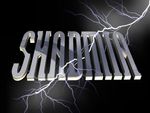Thursday
May082008
SDSU Students Arrested on Drug Charges
 Thursday, May 8, 2008 at 4:20AM
Thursday, May 8, 2008 at 4:20AM 75 Students of San Diego State University were among the 96 people arrested on various drug offenses in a year-long investigation by the DEA in cooperation with the university's administration. 18 of the arrests were made on campus on May 6, 2008. Many of the arrested were members of fraternities. It was one of the largest college raids ever conducted.
During the operation authorities seized: 4 pounds of cocaine, 50 pounds of marijuana, 48 marijuana plants and 350 ecstasy pills, psilocybin (mushrooms), 30 vials of hash oil, methamphetamines, various illicit prescription drugs. Police also confiscated one shotgun, three semi-automatic pistols, three sets of brass knuckles and $60,000.
[youtube=http://youtube.com/watch?v=_n9ixDa8iLs]
Theta Chi and five other fraternities (Lambda Chi Alpha, Phi Kappa Psi, Phi Kappa Theta, Sigma Alpha Epsilon and Sigma Alpha Mu) have been suspended pending a hearing on evidence gathered during the investigation, dubbed Operation Sudden Fall. Authorities singled out the Theta Chi fraternity as a hub of cocaine dealing.
A member of Theta Chi, Kenneth Ciaccio, sent out a mass text message to his "faithful customers" stating that he and his "associates" would be unable to sell cocaine while they were in Las Vegas for a fraternity formal, according to the Drug Enforcement Administration. The text promoted a cocaine "sale" and listed the reduced prices on bulk quantities. Until his arrest, Ciaccio was featured on SDSU's Web site promoting the Compact for Success program, which guarantees certain Sweetwater Union High School District students admission to the university if they maintain a B average. Leaders at the Theta Chi national office in Indiana said they have barred the San Diego chapter from hosting any events.
“This is not indicative of what Theta Chi is about,” executive director Dale Taylor said in a phone interview.
Raids began as early as 6 a.m. several witnesses said. Greg Muender, president of Phi Kappa Psi, said police showed up to scour two of the fraternity's apartment. “They searched pretty rigorously for probably two hours with dogs,” Muender said. “Quite honestly, they trashed the apartments pretty good. Everything was turned over. Everything's on the bed.”
One suspect, Phi Kappa Psi member Michael Montoya, worked as a community-service officer on campus and would have earned a master's degree in homeland security next month. Another student arrested on suspicion of possessing 500 grams of cocaine and two guns was a criminal-justice major.
"A sad commentary is that when one of these individuals (Michael Montoya) was arrested, they inquired as (to) whether or not his arrest and incarceration would have an effect on him becoming a federal law enforcement officer," said Ralph Partridge, special agent in charge of the Drug Enforcement Administration in San Diego.
[youtube=http://youtube.com/watch?v=n8qiKOLSIIw]
News of the mass arrests didn't make it to one Los Angeles mother, whose son's name appeared on list of arrestees that was released by law enforcement officials. “Oh, my, my,” said Wong Watanapun, whose son Thomas Watanapun was among those charged. “I don't know anything.” According to the search-warrant affidavit, Thomas Watanapun sold $400 worth of cocaine to undercover agents from a Lexus sedan registered to his father in Los Angeles.
Patrick Hawley, 20, who was arrested on suspicion of armed robbery and selling cocaine near the campus, was arraigned in San Diego Superior Court along with Omar Castaneda, a gang member from Pomona with ties to some Mexican drug cartels. Castaneda, 36, was arraigned on charges of possession of cocaine for sale. He is suspected of being a major link between drugs flowing into California from Tijuana and sales at SDSU.
Campus police started the probe a year ago after the cocaine overdose death of a freshman sorority member, Jenny Poliakoff, but they soon called in federal agents to provide fresh faces on campus and supply the money needed to make drug buys. The invitation to federal authorities was unusual because it involved an open-ended investigation that didn't involve a violent crime. "In general, universities are pretty jealous of their prerogatives and are uneasy about welcoming outside authorities onto campus," said Todd Gitlin, a professor of journalism and sociology at Columbia University,a former student radical and a leading authority on the '60s counterculture. "There's a real reluctance at universities to call on outside police." While the investigation was under way, a student named Kurt Baker, 22, from nearby Mesa College, was found dead of a cocaine overdose in February in the Sigma Pi fraternity house at San Diego State.
University President Stephen Weber defended the decision to bring federal authorities onto campus.
"Some have asked what we think this publicity has done for SDSU's reputation. I have told them I am proud of the action taken by SDSU to proactively address this serious threat to our students," Weber said in a statement Wednesday. "As a parent I would want my son or daughter to attend a university committed to providing the safest possible environment."
SDSU placed an informational page on its website to address any questions that may come up resulting from the arrests announced. Stephen Weber also said: "SDSU will continue to do what is necessary, through both enforcement and education, to encourage our students to make the responsible choices to ensure the health and safety of our campus community."







